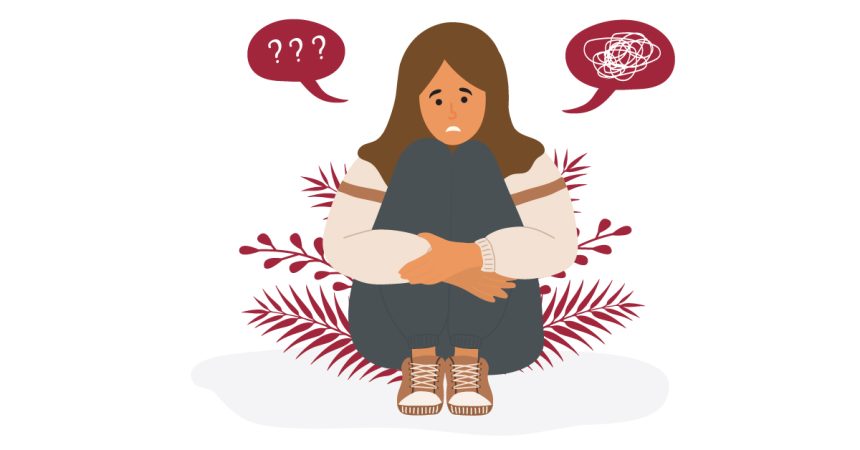Mental Health Crisis Among College Students U.S.A. The contemporary world has seen an increase in the prevalence of mental health difficulties among students. This rapid transition from childhood to adulthood coupled with academic overload, financial constraints, societal obligations, and quest for independence results in high anxiety levels and stress for many. The paper will explore various aspects of the crisis in mental health on campus including its causes, impacts, and possible solutions.
Understanding the Mental Health Crisis
Factors Influencing Mental Health Challenges
Academic Pressure
Students in higher education face massive pressure from exams, deadlines and wanting to get high grades which usually affect their mental health.
Financial Stress
Increasing costs of tuition fees, textbooks as well as living expenses are a burden for most students thereby deteriorating their mental conditions even further.
Social Issues
In college, pressures like making new friends fitting into a group, or maintaining relationships tend to get intensified resulting in feelings of isolation and loneliness.
Impacts Of Mental Illnesses
Poor Academic Performance
For example, such learners may fail to concentrate leading to poor grades hence affecting their overall academic performance.
Physical Implications On Personal Fitness Conditions
Therefore untreated mental illness can lead to physical symptoms like migraines, fatigue as well a low immune system consequently obstructing general well-being in students’ lives.
State Of Social Isolationism
Depressed individuals mostly isolate themselves away from people hence developing ideas that they are disconnected from others.
Recognizing Signs And Seeking Help
Common Indications Of Emotional Problems?
Depressed Mood Or Anxiety Which Persists For Long Periods Of Time Despite Circumstances?
A person who is always unhappy might be suffering from depression while one who is always worried sometimes without any reason may have some underlying psychological troubles.
Behavioral Changes To Watch Out For In Students
However, noticing dramatic changes in behavior needs special attention since it could show that somebody has come closer to a breaking point.
Stress Management Difficulties
Such students can resort to seeking counseling services if they cannot handle minor stresses or freak out on every small issue.
Getting Access To Resources And Support
On-Campus Counseling Services
Many institutions of higher learning have confidential counseling services facilitated by trained counselors who also provide therapy and referrals to other resources.
Community Outreach Programs
Local community organizations often offer mental health support groups, workshops, and resources that suit the needs of students in college.
Online Therapy Platforms
Thus therapeutic sessions can be done virtually hence providing students an opportunity to interact with licensed counsellors at their hostels from their rooms.
Preventive Measures and Coping Strategies
Advocating For Personal Self-Care Practices
Therefore, to decrease stress levels and promote mental wellness, learners should engage in activities like regular exercises; meditation; and enough sleep; as well as eating a balanced diet among others.
Establishment of Support Systems
Consequently, the existence of supportive communities within campuses through student clubs, peer mentorship initiatives or even organizing campus events that unite people towards one common goal strengthens cohesiveness among collegegoers, thus enhancing their integration into higher education systems.
Demystifying Mental Health Matters In Universities And Colleges
Educating students about mental health issues, initiating conversations on it openly, and debunking stereotypes and stigma could encourage individuals to seek help without feeling judged.
1. Do any programs exist to aid students who need mental healthcare but can’t afford it?
Also, some institutions offer student assistance or scholarships for those with psychological matters such as low-cost or free counseling centers.
2. In what ways can a parent help their children cope with mental health issues while in college?
They may offer emotional support, promote open channels of communication, and assist them locate the appropriate resources and expert help when necessary.
3. How can learners handle stress emanating from academic deadlines and exams differently?
An individual can handle educational obligations through time management, finding academic support services, or using relaxation techniques like deep breathing as well as mindfulness, among others.
4. What should I do if I think my friend may be having some problems related to his mental condition?
Besides this, you must show concern over his state; say that you are ready to listen without judging him/her and suggest he/she visit a counselor from your institution’s counseling department or professionals outside the university.
Concluding statement
This issue has far-reaching consequences for society, with many facets about how it affects people and schools, which makes this emergency more than just one problem. Campuses have a big role in addressing these concerns by sensitizing people about this matter, getting access to sources of information, and creating conditions in which mutual assistance between students is possible; therefore, this will contribute to tackling numerous problems experienced by different individuals within colleges. There is no time like now when mental health should take precedence because if not then all our lives will lead into a society of no comprehension amongst ourselves where we cannot feel other people’s pain while going through school lives.










